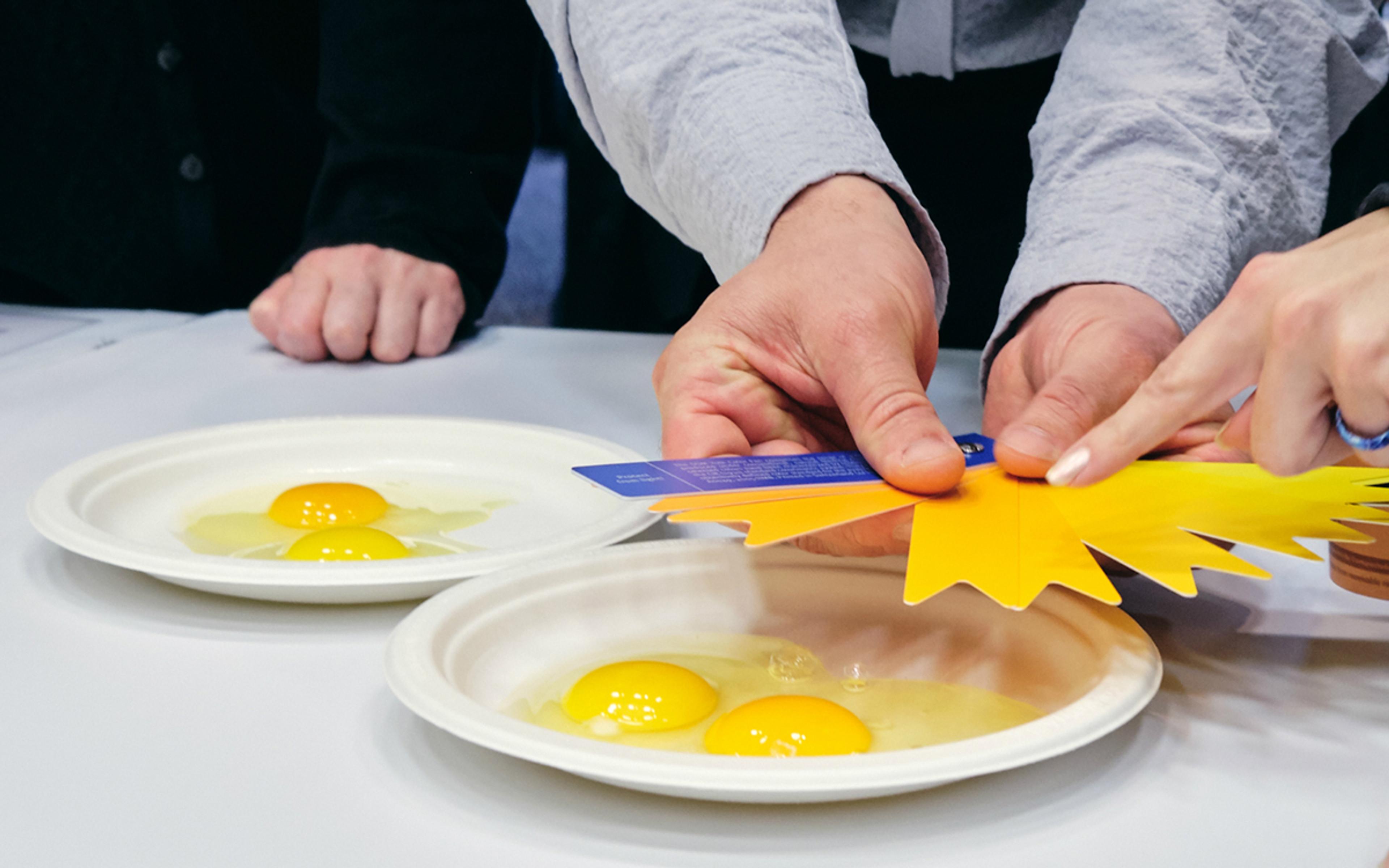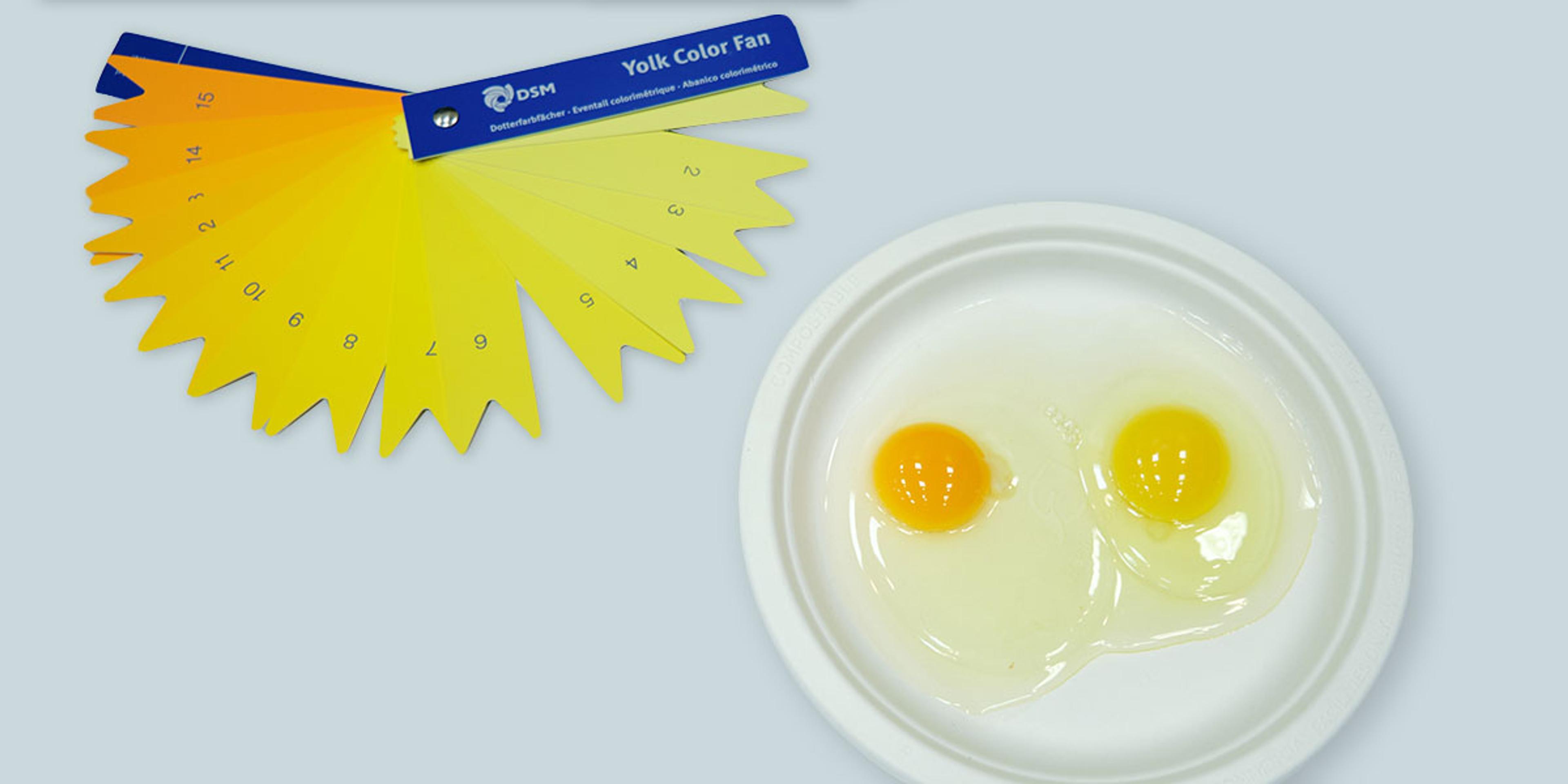
Food
What Does an Egg’s Yolk Color Mean?
The first thing you notice about a freshly cracked egg is the yolk. How could you not notice that brightly colored globe plopped so perfectly in the middle of the white? But did you ever wonder why yolks are colored anywhere from light yellow to deep orange? We wondered. So we researched.
First, what are the facts of egg yolk nutrition?
We sing the praises of egg whites as a low-calorie, fat-free protein powerhouse, but what do yolks provide besides cholesterol, fat and eye-popping color?
The answer is many nutrients such as fat-soluble vitamins like D, E, K and A (you get zero percent of those from the egg white), essential fatty acids like DHA, ALA and EPA omega-3s, and other nutrients like calcium, iron, magnesium, phosphorous, zinc, choline, carotenoids and a hefty serving of B vitamins. In fact, most research shows that of all the nutrition found in eggs, most of it is found in the egg yolks.
As for protein, watch out for misleading information because yolks pack a protein punch nearly equal to egg whites! They contain an average of 43% of the total protein content of the egg.
Is the yolks’ phenomenal nutritional content responsible for the color?
No, it’s not. This is a big misconception among egg lovers.
The color of the yolk has very little to do with its nutritional content. Actually, yolk color depends almost entirely on pigments in the food chickens eat. If a hen eats plenty of yellow-orange pigments called xanthophylls, those pigments will make a darker orange egg yolk.
When hens eat feed containing yellow corn or alfalfa meal, they lay eggs with medium-yellow yolks. When they eat wheat or barley, they lay eggs with lighter-colored yolks. A colorless diet, such as white cornmeal, produces nearly white egg yolks. (Imagine the surprise when you crack that egg!)

Organic Valley farmers use a yolk color fan to judge egg yolks at an educational workshop.

We use a yolk color fan to determine whether the yolk is as dark as Organic Valley consumers expect it to be.
Because most consumers in the United States prefer gold or lemon-colored yolks, yellow-orange enhancements may be added to light-colored feeds to darken the yolk’s color. For certified organic eggs, like ours, these supplements have to be organic-approved and usually come from nature, such as marigold petals. Yolk pigments are relatively stable and are not lost or changed in cooking.
Eggs produced on our Organic Valley farms will typically have a consistent yolk color year-round since our hens get the bulk of their nutrition from their regular feed ration. But you may see slightly darker yolks in the warm months when the birds are spending more time outdoors eating seeds, grasses and bugs in addition to their regular feed. But again, the nutrition is the same no matter the color.
Although egg yolk color does not mean it has higher or different nutrition, many people do think dark-colored yolks are more flavorful. This hasn’t been backed by science, so you’ll have to judge for yourself — a prospect we don’t think you’ll mind, if you love eggs as much as we do!
So what are the takeaways here?
- Yolk color is the result of pigments in the chickens’ feed.
- Dark and light yolks have the same nutrition.
- Ultimately, we get the biggest nutritional bang for our buck by eating the whole egg since all those nutrients work together in our bodies.
Related Articles
- Tags:
- organic nutrition















